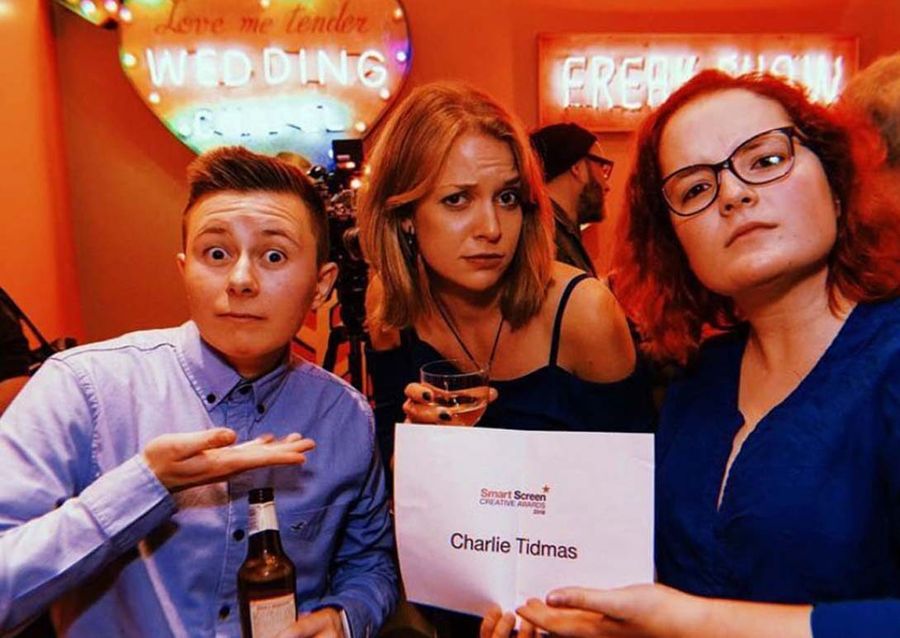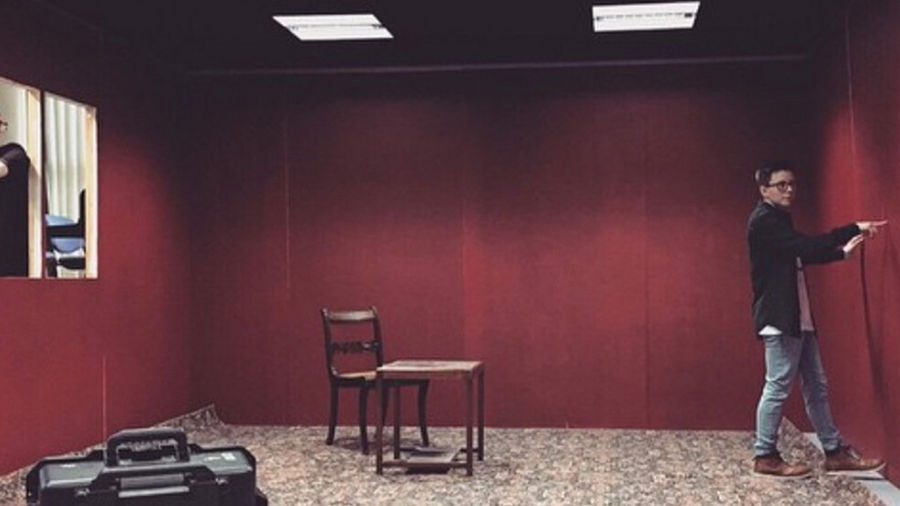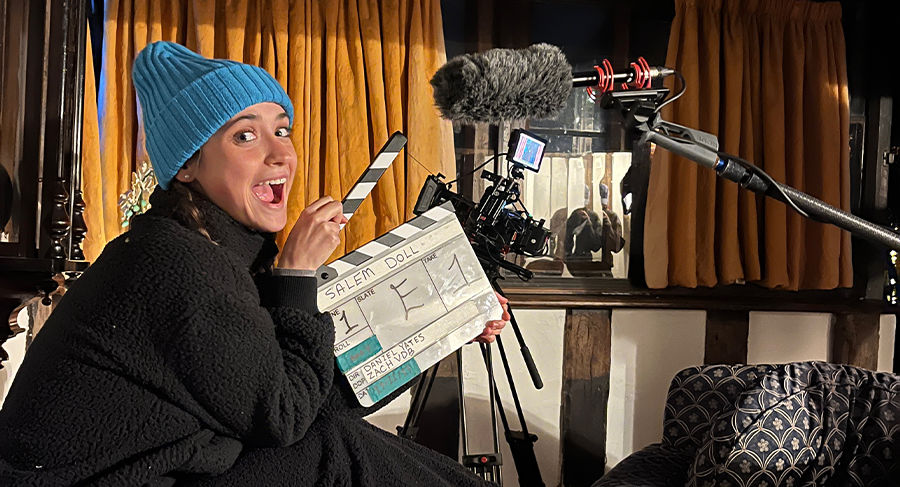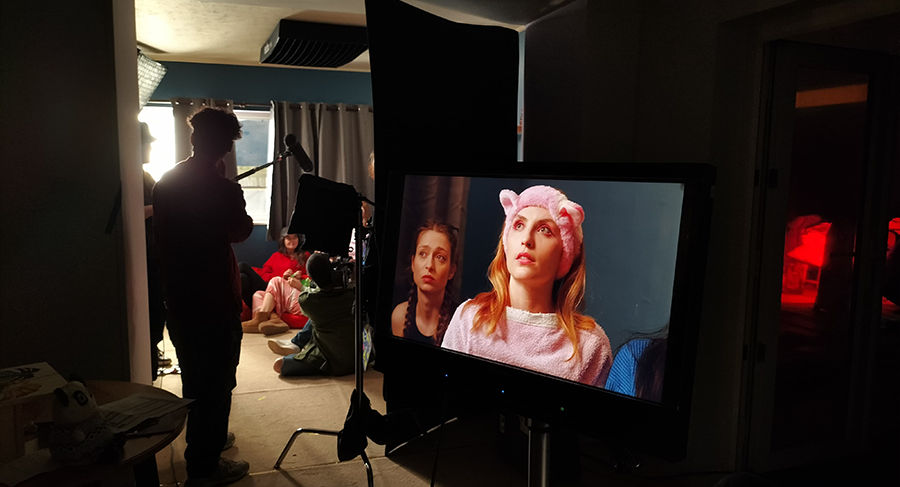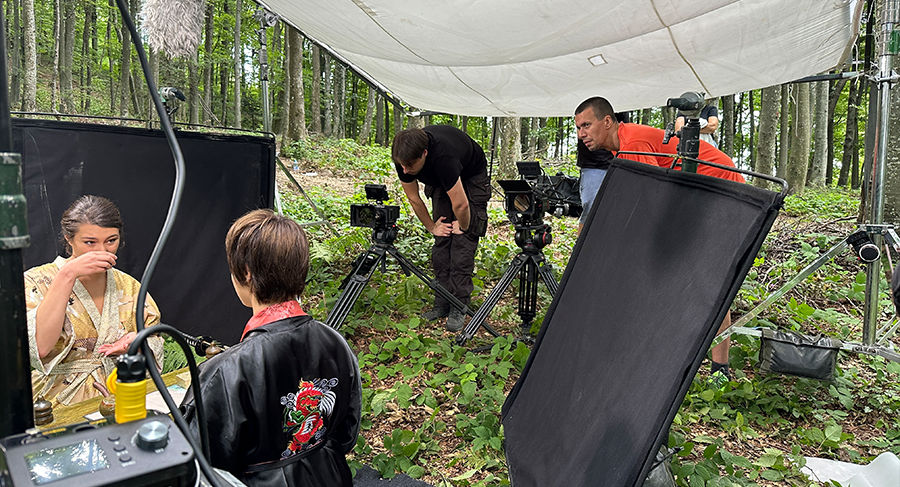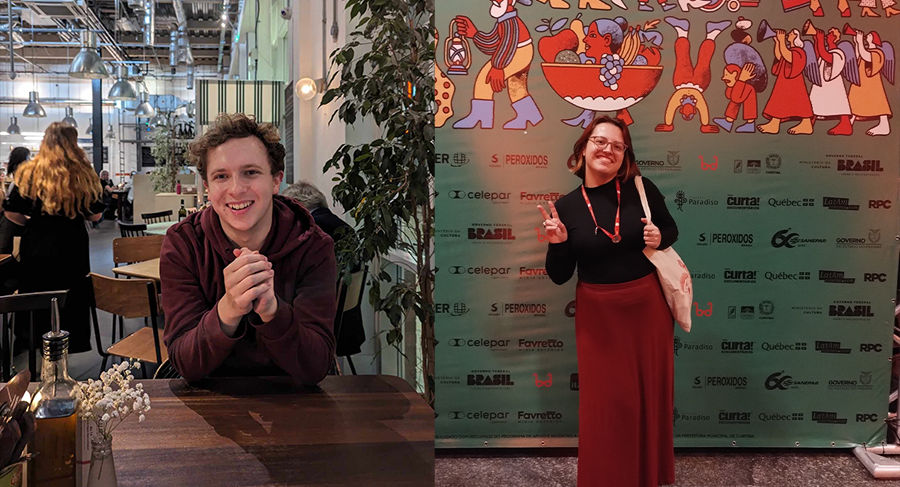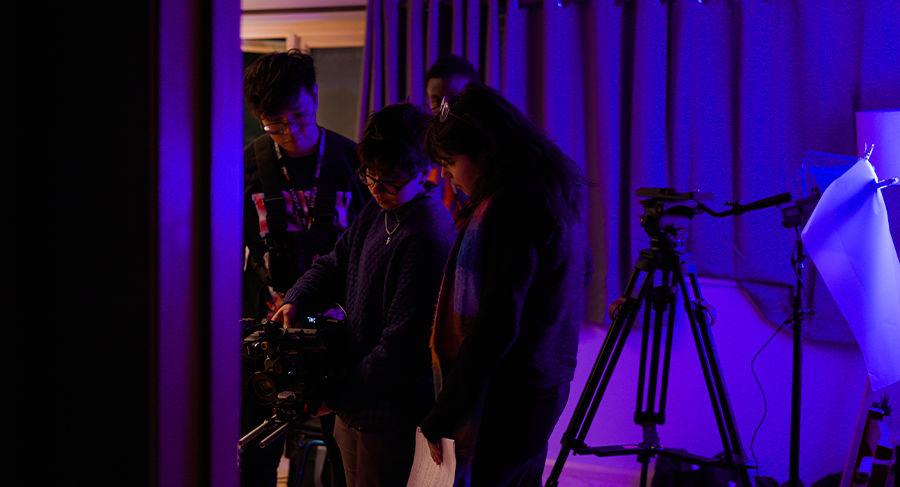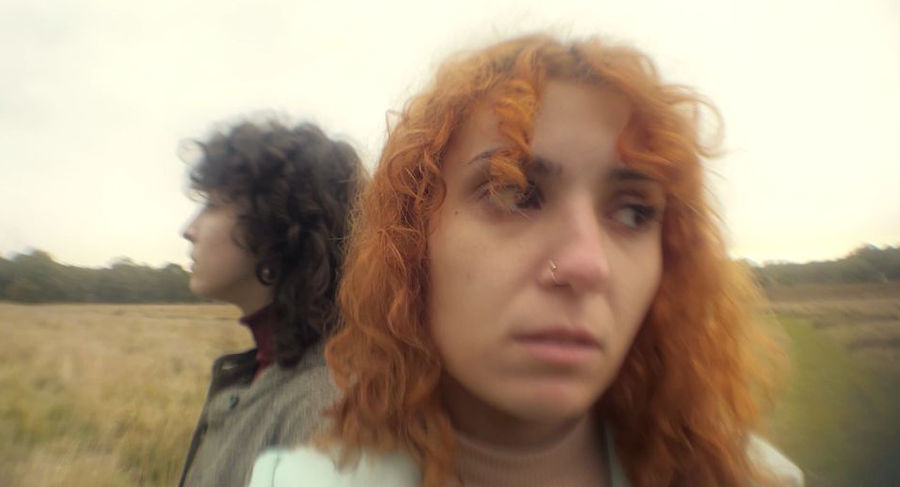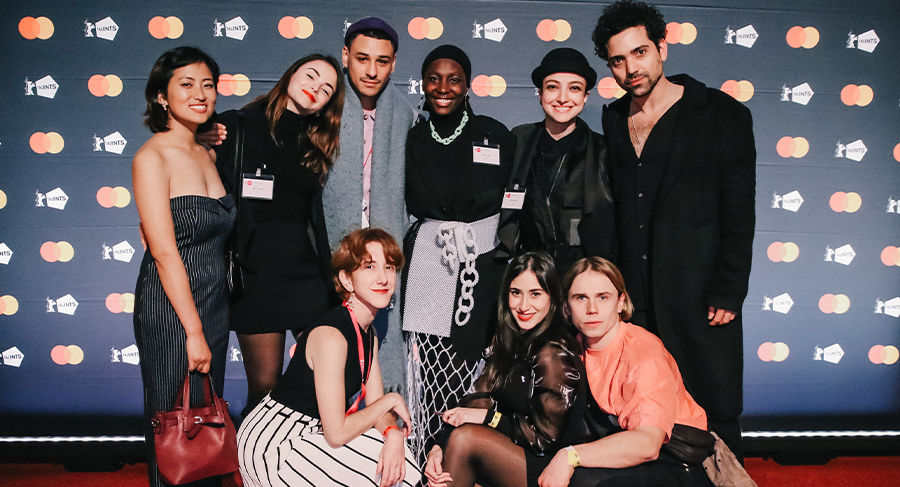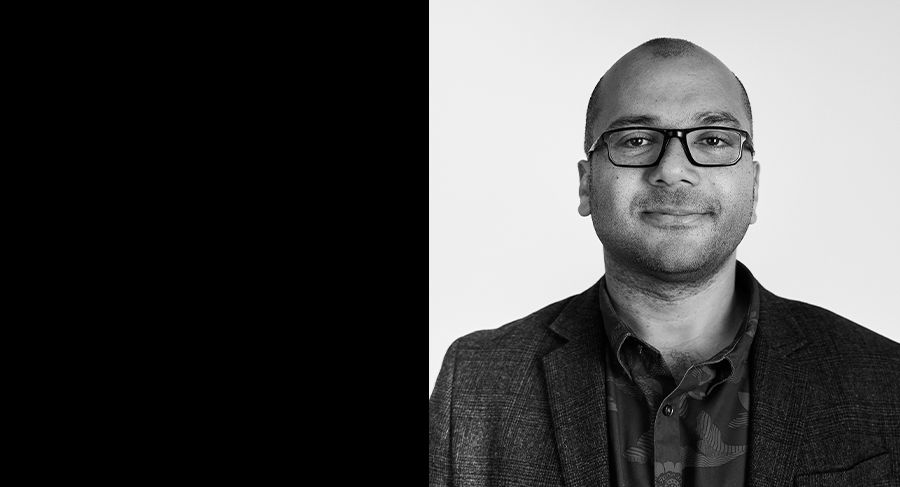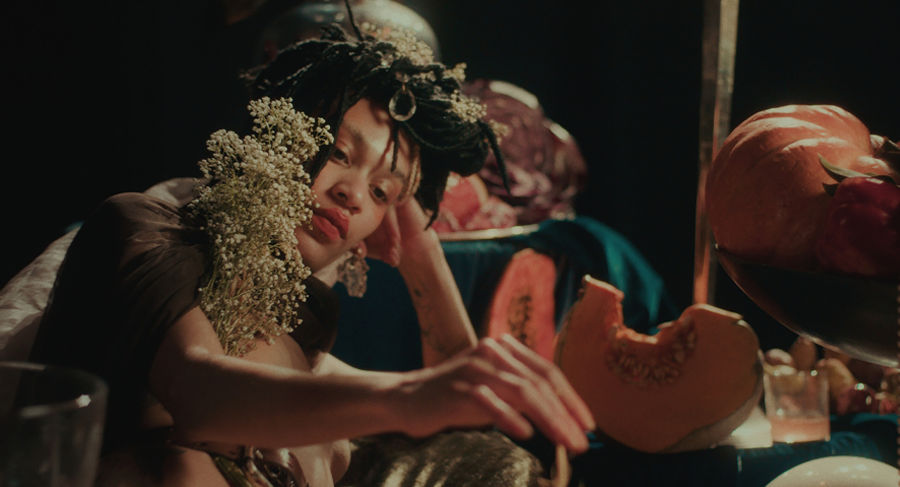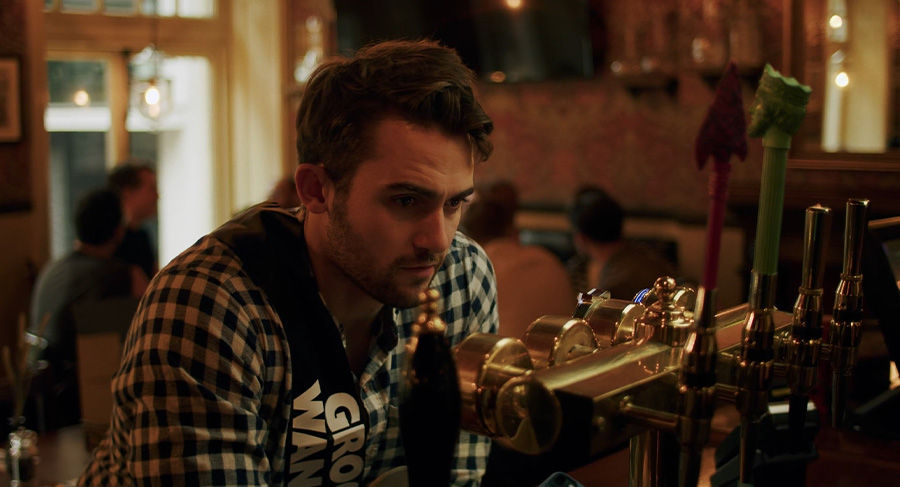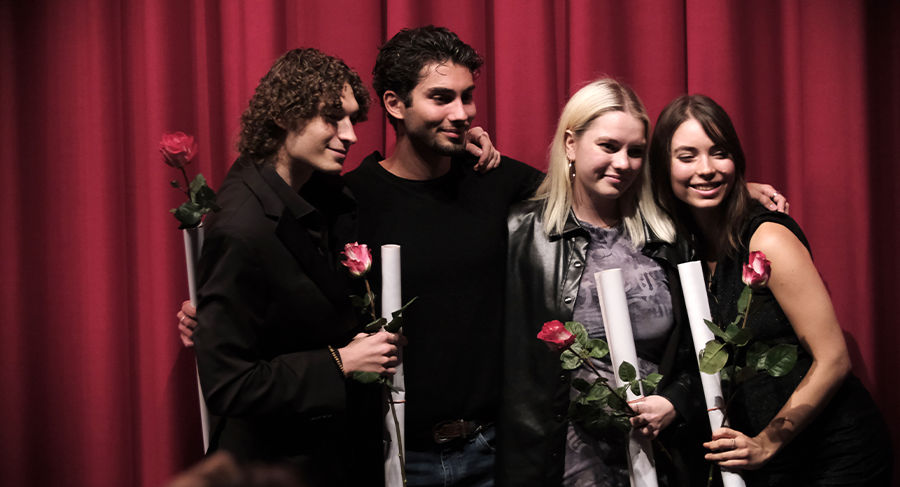MA Screenwriting Alumni Charlie Tidmas on working with BFI Network
By Elise Czyzowska
04 May 2022
Charlie Tidmas is a screenwriter, filmmaker, and MetFilm School London alumni. Since graduating from our MA Screenwriting course, he has been busy writing and editing independent film scripts, as well as lecturing on the BA Screenwriting course Canterbury Christ Church University – making him the youngest faculty member there!
In 2021, Charlie was selected for the BFI NETWORK x BAFTA Crew Talent Development Programme, an amazing opportunity which supports the next generation of film and television talent. To learn more about his time on the programme, as well as what he’s learnt from his first few years in the industry, we caught up with Charlie for today’s blog…
Can you tell us a little bit about the BFI NETWORK x BAFTA Crew Programme?
It’s been a fantastic experience for me. I was lucky enough to be selected as a Crew Mentee, which means that I was paired up with the incredible Gavin Humphries for some really insightful chats about the industry. Crew put on a bunch of networking events which have helped me to meet filmmakers from all around the UK, and there have been a range of educational sessions from exciting filmmakers in the industry, across all roles.
It’s been great to keep learning, and to have both BFI and BAFTA telling me that I’m on the right track with my career by selecting me. I reckon that the best part so far has to have been the invite to the BAFTAs – that was pretty cool!

There’s no ‘right’ or ‘wrong’ way to write a script, but do you have any tips for strong writing?
Having something to say is essential. Nowadays, anyone can write a competent script; there are lots of resources around to help people write competently. The difference between competent and good is having something to say. Knowing what you want your audience to walk away from the finished project thinking is essential. It’s what makes you stand out as a writer.
More and more, it’s you as a writer – your specific voice – that sells your script, more than the story itself.
Also, while it’s great to emulate aspects of your hero’s work, don’t directly copy them. You wouldn’t believe how many Fleabags I’ve read in the past three or four years!
Are there any scripts you would recommend to aspiring writers?
I’d recommend just reading tons of scripts, bottom line. Good or bad, it doesn’t matter. You’ll learn from them. I’m constantly baffled by the number of aspiring writers who can’t say what the last script they read was because they haven’t read any – it’s like wanting to be a pilot and refusing to even look inside a cockpit before your first flight!
That being said, I highly recommend the Moonlight script. I’ve a real soft spot for it. It’s also very useful to read Disney or Pixar scripts, because their stories are, more often than not, absolutely watertight – they’re properly good at it.
You’ve just wrapped on a short for BFI Network – how has that experience been?
The experience was fantastic! My cast and crew were an absolute dream. I’m incredibly grateful for the opportunity, and I was floored by the commitment and skill of everyone around me.
We shot over a weekend and spent the majority of that in a hotel room, so it was slightly claustrophobic, but very productive. We’re just heading into the edit with it now, which is almost as nerve-wracking as the first day of filming!
I’m so thankful to our executive, Tom, for commissioning us, and for giving trans creatives the platform to actually tell our own stories, which feels quite rare in the industry at the moment. The short is called Pillow Chocolate, keep an eye out for it!
You wrote and directed Pillow Chocolate – when you take on both roles, how does the creative process change?
I think it depends on the project. I work as a writer the majority of the time, so I’m able to be fairly emotionally divorced from my scripts once they’re finished. I also like to think that I’m quite a visual writer, so in both cases I can definitely ‘see’ what I think the project will look like as I’m writing it.
More often than not, a director has a different vision, and the direction that they take can sometimes be quite a surprise. The main difference as a writer-director is that I get to work with my team to make something more closely based on my original intentions. Of course, nothing ever happens as expected – that’s the fun of it to me.
At the end of the day, I’m not precious about my scripts. I think it’s fundamentally important to collaborate with your team; more often than not, they’re more experienced than you and they’ll have fantastic suggestions.
What type of material do you gravitate towards – and how did you go about establishing a ‘personal style’ for yourself?
I’m a real sucker for a project that explores notions of masculinity. I also love queer stories. My work usually intersects these areas, although I wouldn’t say that I work exclusively in any specific genre. I started out writing a lot of social realist stories, but I’ve definitely branched out as I’ve gained more experience and confidence.
I think that my personal style comes from being a fairly opinionated guy. I have something to say with every project that I work on. In fact, if I don’t have something to say with a story, I’m more likely to step back from it, because either I’m not the right person for it, or I’m not in the right place to be working on it.
My early work was very functional and bland, because I was still learning how to write in various formats. Now that I’m more confident with the formats, I can be a lot more playful with my work, and bring my personality in more.
Taika Waititi leaves his scripts for years at a time before rewriting them – do you have any processes to get into the creative mindset?
I wish I was as cool as Taika Waititi! I don’t think that I do anything quite that structured, but I find that doing something mindlessly physical, like running, mowing the lawn, or ice skating, is a great way to break a story if I’m really stuck. The more pressure that I put on myself to solve a story issue, the less likely I am to solve it.
When I first get an idea, I’m also quite strict with myself that I have to write a logline before I’m allowed to start developing the project, specifically using the John August structure. If I can’t identify the inciting incident, hero, antagonistic force, goal, and stakes, I’m not ready to write it. It’s a really useful tool, and using it means that I don’t have to waste time figuring out that stuff while I’m writing.
How did your time on the MA Screenwriting course help to develop your skills?
I attended MetFilm School completely incapable of writing anything longer than a short film script. My time at the School was focused on learning how to tell stories in longer formats, and practicing how to do so. The 1:1 time with the tutors was essential to me, and I left feeling really confident. My graduation feature film script placed in the top 10% of the Academy Nicholl Fellowship, so I’d say that I was taught quite well!
The major lesson that I took away from my time at MetFilm School was… Whose story is it? Why now? – I still ask myself those questions all the time to make sure that I’m on the right track with a story.
Finally, what piece of content has inspired you lately?
Speaking of Taika Waititi – Our Flag Means Death is essential viewing in my eyes. It’s fantastic. David Jenkins has changed the game – hopefully for good!
- Charlie Tidmas studied our MA Screenwriting course at MetFilm School London – check out his work here.
- Learn more about the BFI NETWORK x BAFTA Crew Programme!
- Interested in an MA degree from MetFilm School? Join us next week at our London MA Open Evening!
